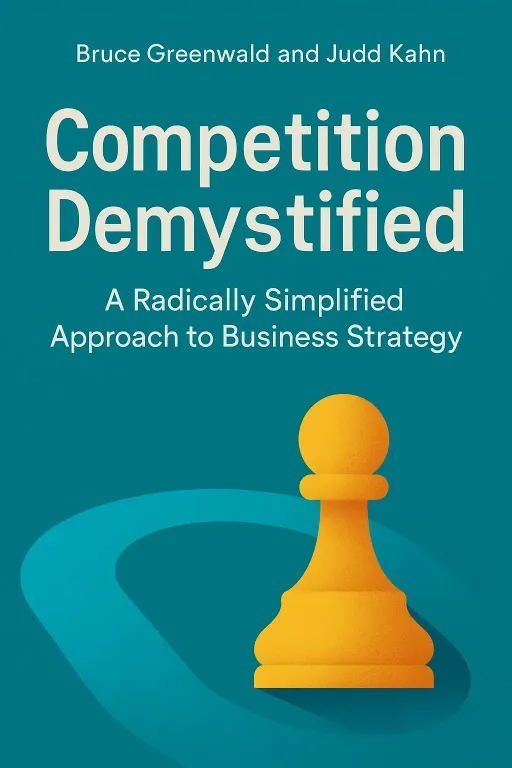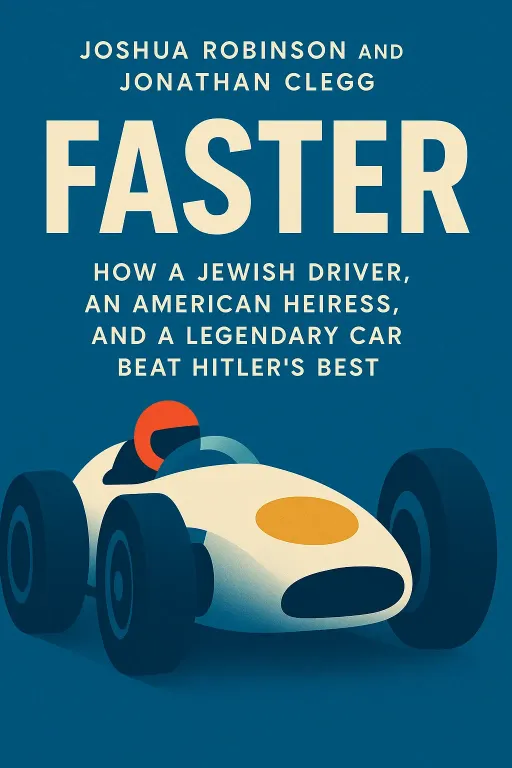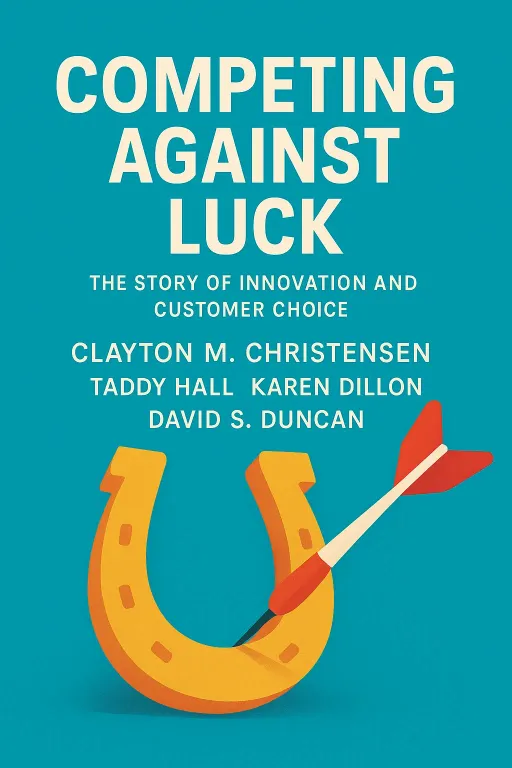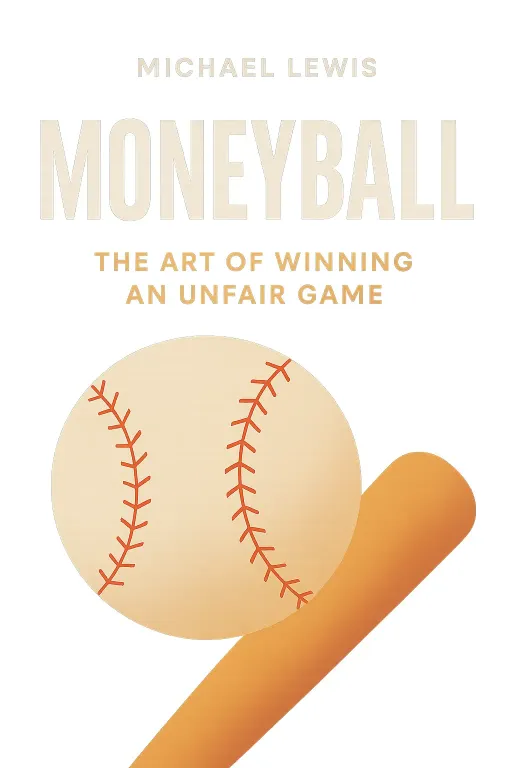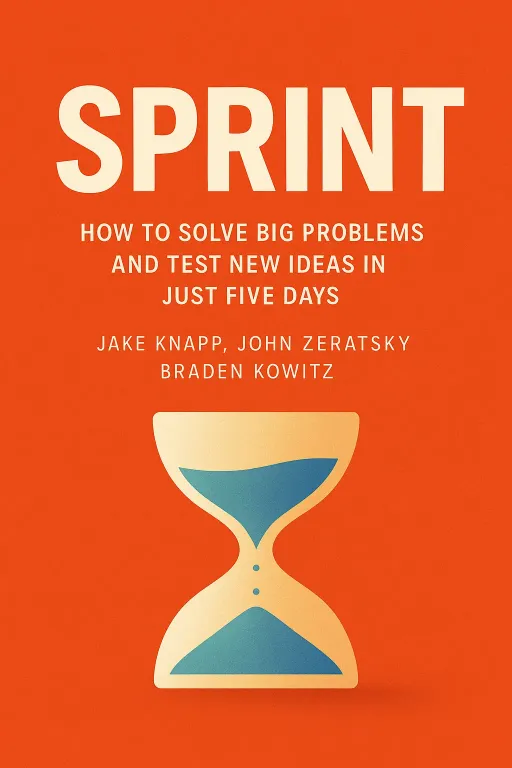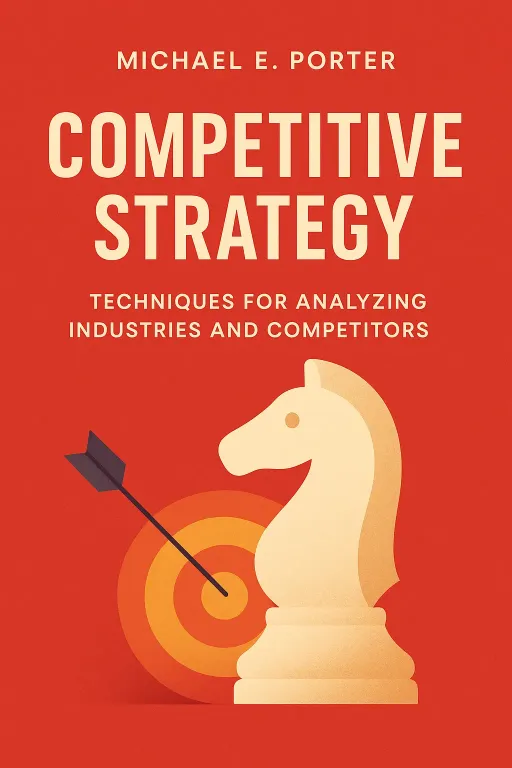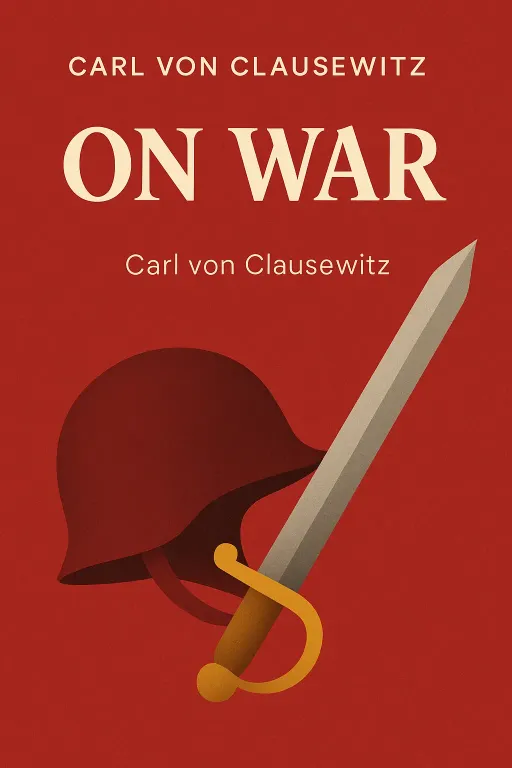
The Clausewitz Paradox
12 minGolden Hook & Introduction
SECTION
Joe: Alright, Lewis, be honest. Before we started prepping for this, if I said the name 'Clausewitz,' what's the first word that comes to your mind? Lewis: Homework. Or maybe... a very serious German schnitzel. Joe: Perfect. Because today we're proving that the guy behind the world's most famously unread military book is actually a genius storyteller about human nature. Lewis: A storyteller? I picture a stern-looking guy in a powdered wig writing about troop formations. The book has a reputation for being, let's say, indigestible. Some readers call it brilliant, others say it's a slog. Joe: It is definitely dense, but that's why we're here. We're diving into On War by Carl von Clausewitz. And the key thing to know is that he wasn't some academic in an ivory tower. He was a Prussian officer, a veteran of the Napoleonic Wars, who saw firsthand how the grand, clockwork armies of the old world were shattered by the passion and chaos of revolutionary France. He wrote this book to make sense of it all. Lewis: Okay, so he's seen real action. That changes things. He's not just theorizing; he's trying to process what he lived through. Joe: Exactly. And his biggest, most earth-shattering idea is one that most people still get wrong today. He famously said that war is "a mere continuation of policy by other means."
War as Politics: The Surprising Trinity
SECTION
Lewis: Hold on. That sounds so cold and clinical. How can war, with all its violence, chaos, and human suffering, be a 'continuation of policy'? That sounds like something a robot would say. Joe: It sounds cold, but it's actually the most humane way to think about it. What he meant is that war should never be a mindless, emotional spasm of violence. It has to have a rational purpose. It's a tool, a very brutal tool, that a state uses to achieve a specific political goal when all other means—diplomacy, sanctions, negotiations—have failed. Lewis: But it is a mindless spasm of violence for the people fighting it. How do you square the rational 'policy' part with the sheer irrational hatred and fear on the battlefield? Joe: Ah, you've just hit on his most brilliant concept: the "paradoxical trinity." Clausewitz says any war is a dynamic interplay of three forces. Think of it like a three-legged stool. If one leg is weak, the whole thing collapses. Lewis: Okay, I'm listening. What are the three legs? Joe: The first leg is primordial violence, hatred, and enmity. This is the raw, blind, natural force. It’s the passion of the people. It's the 'us vs. them' instinct. Lewis: Got it. The emotional, gut-level stuff. Joe: The second leg is the play of chance and probability. This is the domain of the army. It’s where creativity, skill, and courage operate in a world of uncertainty and luck. It's the fog of war, the chaos of the battlefield. Lewis: Right, the actual fighting and all the things that can go wrong. Joe: And the third leg, which is supposed to control the other two, is its element of subordination, as an instrument of policy, which makes it subject to pure reason. This is the government's job. The political objective. Lewis: So you have passion, chance, and reason. And they're all pulling in different directions. Joe: Constantly. And a successful war, according to Clausewitz, is one where these three forces are held in balance. The government's rational political goal must tame the people's blind passion and direct the army's efforts through the chaos of chance. Lewis: That makes so much more sense. It's not that war is rational, but that it should be guided by reason. What happens when it's not? Joe: You get the Vietnam War. It's a textbook case of a broken trinity. The United States had the second leg—the army and its fight against chance—on lockdown. They had overwhelming military force, technology, and resources. They won virtually every major battle. Lewis: But they lost the war. Joe: They lost the war because the other two legs of the stool were rotten. The political objective, the 'reason' leg, was murky at best. Was it to contain communism? Prop up a corrupt government? It kept shifting. And they completely underestimated the first leg: the primordial violence and passion of the Vietnamese people. For them, it wasn't a geopolitical chess match; it was a war for national survival, for their home. Their will to fight was absolute. Lewis: Wow. So the U.S. was fighting a war of policy, while the North Vietnamese were fighting a war of passion and survival. The trinities were completely mismatched. Joe: Precisely. The U.S. military machine was incredibly effective at the 'how' of war, but the government failed at the 'why'. They ignored the political and human reality, and the entire stool collapsed. It's a tragic, perfect illustration of Clausewitz's point. You can have the biggest army in the world and still fail if you forget that war is about politics and people.
Friction: Why Simple Plans Fail in a Complex World
SECTION
Lewis: Okay, so war is this weird, wobbly stool of passion, chance, and politics. But you also mentioned the chaos, the 'fog of war'. That brings me to this idea of 'friction,' which sounds like something from a physics textbook. Joe: It's my favorite concept in the whole book because it applies to everything in life. Clausewitz says, "Everything in war is very simple, but the simplest thing is difficult." That difficulty, that gap between a plan on paper and the messy reality, is what he calls friction. Lewis: So it’s basically like trying to assemble IKEA furniture with a missing screw and a diagram drawn by a toddler, but on a massive, life-or-death scale? Joe: That is a perfect analogy. It's the accumulation of a thousand tiny, unforeseen problems. It’s not one big thing. It’s the rain that turns a road to mud. It's the intelligence report that's slightly wrong. It's a batch of food that goes bad. It's a soldier getting a blister. It's a commander having a bad day. None of these things are catastrophic on their own, but together they create a resistant element, a drag on the entire military machine. Lewis: He uses an analogy in the book, right? Something about walking in water? Joe: Exactly. He says action in war is like movement in a resistant element. Walking is the simplest thing in the world on dry land. But try to walk waist-deep in water, and suddenly it's exhausting, slow, and incredibly difficult. That water is friction. Lewis: That’s a fantastic way to put it. It’s the invisible force that grinds everything to a halt. You must have a historical example for this. Joe: Oh, the perfect one is the Prussian army's own catastrophic defeat at the Battle of Jena-Auerstedt in 1806. This was the army Clausewitz served in. On paper, it was a masterpiece, the legacy of Frederick the Great. It was disciplined, precise, a beautiful clockwork machine. They thought they were invincible. Lewis: And then they met Napoleon. Joe: And then they met friction. On the day of the battle, a thick fog rolled in. That’s the literal 'fog of war'. Suddenly, commanders couldn't see the enemy. They couldn't even see their own troops. The rigid, clockwork system depended on perfect visibility and communication. When that was gone, the whole thing fell apart. Orders got lost, units marched in the wrong direction, and the supposedly perfect army was paralyzed by confusion. Lewis: So the friction wasn't just the fog, it was the army's inability to adapt to the fog. Joe: Exactly. Napoleon's army, born from the chaos of the French Revolution, was messier but far more flexible. His commanders were trained to take initiative. They thrived in the chaos. The Prussian machine, when faced with the friction of reality, just shattered. Lewis: That is so relatable. It’s why a 'five-minute' task at work ends up taking two hours. It's the friction of unexpected emails, a slow internet connection, and a coworker needing help with their own crisis. Clausewitz basically diagnosed modern project management two hundred years ago. Joe: He really did. He gave a name to that universal human experience where a simple plan meets a complicated world.
The Ghost of Clausewitz: Misreadings and Modern Relevance
SECTION
Joe: And because he understood this chaos and the brutal nature of war so well, he's been massively misunderstood. This is where we get to the controversy that has haunted his legacy. Lewis: Right, this is what I was waiting for. Isn't he the guy who supposedly inspired the 'total war' of the World Wars? The whole 'annihilate the enemy at all costs' mentality? I've heard critics blame his ideas for the sheer scale of slaughter in the 20th century. Joe: That's the charge, and it's based on a profound misreading of his work. The tragedy of On War is that Clausewitz died of cholera before he could finish his final revisions. His early chapters, written when he was still processing the Napoleonic experience, focus on the idea of "absolute war"—the theoretical, philosophical tendency of war to escalate to its most extreme form. Lewis: The idea that each side pushes the other to be more and more violent. Joe: Yes. But his later, more mature thinking, which he intended to use to rewrite the entire book, introduced what he called the "dual nature" of war. He realized that while "absolute war" is a logical tendency, in reality, most wars are limited. They are fought for limited political goals, and therefore the violence should also be limited and proportional to that goal. Lewis: So he was actually moving away from the idea of total war? Joe: Precisely. But because the book was published posthumously and unfinished, people cherry-picked the early, more aggressive-sounding parts and ignored the later, more nuanced political arguments. They took the engine of war he described but threw away the steering wheel and the brakes. Lewis: Can you give an example of someone who used his ideas, but maybe got them a little bit wrong? Joe: The best example is the brilliant Prussian General Helmuth von Moltke, who was a devoted student of Clausewitz. In the 1870s, he masterfully applied Clausewitzian principles to orchestrate the swift, decisive defeat of France in the Franco-Prussian War. He understood concentration of force, the importance of the objective, all of it. He made Clausewitz famous. Lewis: So he was a good student. Where did he go wrong? Joe: Moltke diverged on one critical, fatal point. He famously argued that once war begins, the political leader should fall silent and let the generals take over. He believed military logic should dominate. This is the exact opposite of Clausewitz's central thesis that policy must guide war from beginning to end. Lewis: Oh, wow. That's not a small mistake. Joe: It's a catastrophic one. And that very thinking—that the military should be unleashed to pursue total victory without political oversight—is what led directly to the strategic disaster of the Schlieffen Plan and the mindless, attritional slaughter of World War I. The generals took over, and politics was forgotten. Lewis: So people took the 'maximum force' part and ignored the 'for a specific political purpose' part. They read the recipe but left out the most important ingredient. Joe: You've nailed it. They built the powerful car he designed but drove it straight off a cliff because they ignored his instructions on how to steer. And his ideas are still relevant. The Korean War, a classic limited war, sparked a huge revival of interest in Clausewitz because strategists were grappling with how to fight a war without escalating to a nuclear exchange. His theories on limited objectives were suddenly more important than ever.
Synthesis & Takeaways
SECTION
Joe: And that's the enduring genius of On War. It’s not a rulebook. It's not a "how-to" guide for winning battles. It's a way of thinking. It teaches you that war, and by extension any complex human system—be it politics, business, or even a personal project—is a messy, unpredictable collision of human passion, blind chance, and rational goals. Lewis: It's the wobbly three-legged stool, constantly dealing with friction. Joe: Exactly. And the only way to navigate it is with judgment, not formulas. You can't reduce it to a simple set of rules. You have to understand the nature of the beast. You have to be a statesman, a psychologist, and a gambler all at once. Lewis: It makes you wonder... what's the 'friction' in our own lives that we're not accounting for? In our careers or relationships, are our actions—the battles we choose to fight—truly aligned with our ultimate political goals? Joe: A great question to reflect on. He forces you to ask: what is my policy? What is this all for? It’s a profound question, whether you’re a general or just someone trying to get through the week. Lewis: I have to say, I came in expecting homework, and I'm leaving with a new lens for looking at the world. He's not just a military theorist; he's a theorist of reality. Joe: That’s the perfect way to put it. We'd love to hear your thoughts. Find us on our socials and share an example of 'friction' you've faced. Let's see how Clausewitz applies to the 21st century. Lewis: This is Aibrary, signing off.
